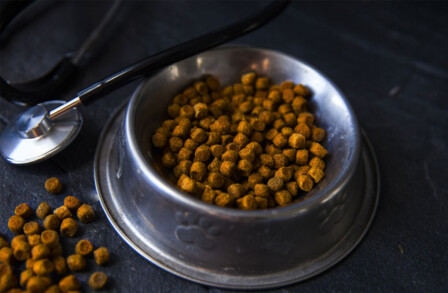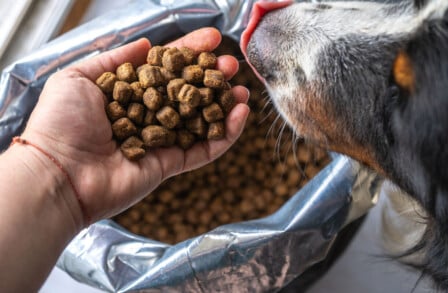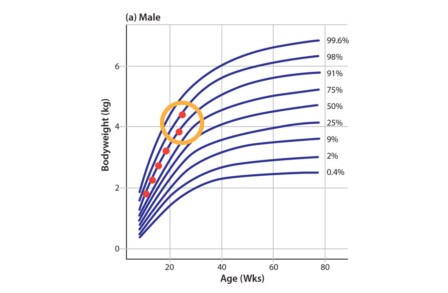Boost your nutritional knowledge with our quiz prepared by a nutrition specialist member of the CAVN.

NutriQUIZ
In October, we take the time to recognize and appreciate our Registered Veterinary Technicians and Technologists (RVTs) for the breadth and depth of skill and knowledge that they bring to veterinary care. Nutrition is the fifth vital assessment, and every patient should undergo a nutrition evaluation and recommendation as part of each appointment. With so much to cover in every appointment, patients may not receive the nutrition consultation that they deserve. However, a successful nutrition...
Sponsored by


Prescribing a diet can be a critical part of the treatment to improve patients' response. As well, diet adjustments must often be done for healthy pets or to prevent nutritional problems. Calculating energy requirements, diet and supplement amounts are steps that play an important role in small animal practice. Addressing patients' individual needs allows us to improve the recommendations, follow-up and client adherence to the plan. This NutriQuiz reviews nutritional strategies and assessments...
Sponsored by


Adverse food reactions (AFRs) are often categorized as disorders without an immune component (e.g., food intolerance or toxic reactions) or disorders with an immune component (e.g., diet hypersensitivity or true food allergy). Immune responses in dogs and cats are characterized as IgE antibody-dependent, cell-mediated or mixed reactions. It can be difficult to differentiate between food intolerance and hypersensitivity (or true food allergy) in patients with gastrointestinal signs and/or skin...
Sponsored by


Pets need to eat every day, and this includes providing nutrients to the microbes in the gut microbiome. There are over 100 trillion microorganisms including bacteria, viruses, fungi, archaea and protozoa in the gut of cats and dogs. These microbes can ferment or chemically interact with ingesta that reaches the large intestine. This interaction results in the release of chemicals known as metabolites.
Metabolites play a role in many physiological functions; they can be an energy source for...
Sponsored by


When clients first consider essential supplies for their healthy new puppy, nutrition for growth may seem like a topic better suited for the aisles of pet specialty shops or discussed with a trusted paraprofessional. As veterinary professionals, we know that prevention is the best medicine! Wellness nutrition and care can be just as important as nutrition intervention in clinical nutrition. No other life stage is as critical for the long-term health of a patient than during the growth phase of...
Sponsored by


Feeding a kitten properly is a crucial aspect of their development, and it's essential to understand their nutritional needs to ensure they grow up to be a healthy adult cat. Pet owners are often in search of information on how much and what food to feed their kitten. These information sources may include websites, veterinarians, pet stores and pet food labels. A kitten's diet is important for their growth, development and long-term health, and it's essential to provide them with the vitamins,...
Sponsored by


Many pet owners choose to use human foods as treats and rewards, as a way to give medication, or even as a major part of their pet’s diet. While many human foods can be safely included in a pet’s diet (if it comprises less than 10% of total calories or if using a recipe formulated by a nutritionist), there are some food items which are not safe for pets to consume. It’s important to know about these potentially harmful food items to better educate owners on what is safe and not safe to feed to...
Sponsored by


Answer these 5 questions to boost your nutritional knowledge!
To find the correct answers, carefully read the articles in our fourth issue of APPETITE magazine.
Sponsored by


Answer these 5 questions to boost your nutritional knowledge!
To find the correct answers, carefully read the articles in our third issue of APPETITE magazine.
Sponsored by





 5:00 min
5:00 min








